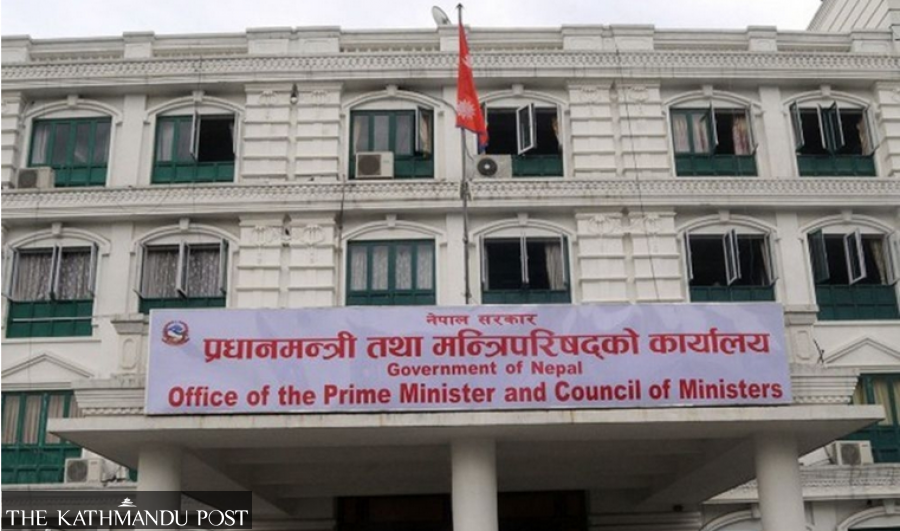Politics
New parties keen on joining government, but with caveats
Nagarik Unmukti presses for Resham’s release, Janamat eyes Madhesh chief minister, Swatantra remains divided.
Nishan Khatiwada
Of the 12 parties elected to the House of Representatives in the recently-concluded polls, as many as three made it to the lower house in their first attempt at parliamentary politics. The Rastriya Swatantra Party, the Janamat Party and the Nagarik Unmukti Party have not only entered Parliament in their first bid in major elections, they have also become kingmakers—with the potential to shape the power structure in the foreseeable future.
Winning a combined 20 seats from both the first-past-the-post (FPTP) and proportional representation (PR) categories, the Rastriya Swatantra Party became the fourth-largest force in the 275-member lower house.
The party, however, is yet to come up with a formal decision on joining the next government. Party leaders are divided—some are lobbying to join, while others are strictly against it.
Its president, Rabi Lamichhane, appears to be in the former camp.
Speaking after receiving the certificate of his election on November 25, Lamichhane said the party would forge necessary alliances. “Our party did not ally with any force during the polls, but we can still support a force that’s working for the country’s betterment,” he said.
By contrast, many of its other leaders say that they should rather remain a strong opposition.
“Our president and some other leaders have strong desire to join the new government, even though the mandate is to remain in the opposition and build our party first,” a central committee member of the party told the Post, requesting anonymity. “Our party is in its infancy and vulnerable.”
Before finalising the list of candidates to be picked under the PR category, some leaders had reached the central office in Kathmandu to alert the leadership and ask them not to join the new government. They said the party’s fourth position in the elections suggests the public wants to see it play the role of an effective opposition.
Party spokesperson Mukul Dhakal said the central committee meeting on Friday had discussed the matter. “The meeting decided to hold further deliberations on whether we should join the government,” Dhakal told the Post.
The CK Raut-led Janamat Party, in its foray into parliamentary elections, got five seats. It won one FPTP seat and earned the national party status in Parliament.
Two weeks ago, Raut called on Prime Minister Sher Bahadur Deuba and said the Janamat Party will cooperate with the ruling coalition to form new governments at the provincial and federal levels.
A day later, Raut met CPN (Maoist Centre) chair Pushpa Kamal Dahal.
The party leaders are also in touch with the coalition leaders in a bid to join the new government.
Janamat Party General Secretary Chandan Singh said, “Yes, we had agreed to join the ruling coalition’s next government, but we had some conditions. We have demands related to the Madhesh movement, withdrawal of cases, and to corruption and farmers’ problems.”
“The ruling parties should decide on how they will incorporate us by addressing our demands. We are holding informal discussions with the parties,” Singh said.
Similarly, three leaders of the Nagarik Unmukti Party, including chair Ranjita Shrestha, won parliament seats under the FPTP category.
The party is also ready to join the government, but with a caveat.
The party’s secretariat meeting in Kathmandu on Friday decided that it can join the next government if its jailed leaders and cadres, including Resham Chaudhary, are freed.
Nagarik Unmukti Party leader Thakur Singh Tharu, who had contested Banke-1 Parliament seat but lost, said that until the cases against Chaudhary and others are withdrawn, they cannot even imagine joining the government. “Until then, we will neither join the government nor take oath as lawmakers.”
The Nepali Congress-led ruling coalition needs the backing of the Nagarik Unmukti Party and the Janamat Party to form provincial governments. Hence the bargaining is happening as a part of a package deal, sources said.
“We also have an important role to play in the Madhesh Province as there is no possibility of forming a government there without us,” said Singh, the Janamat Party general secretary. “We should thus reach a package deal on both the federal and provincial levels.”
Janamat Party insiders say the new force has also staked claim to government leadership in the Madhesh Province—where it has asked for four ministries.




 10.12°C Kathmandu
10.12°C Kathmandu















